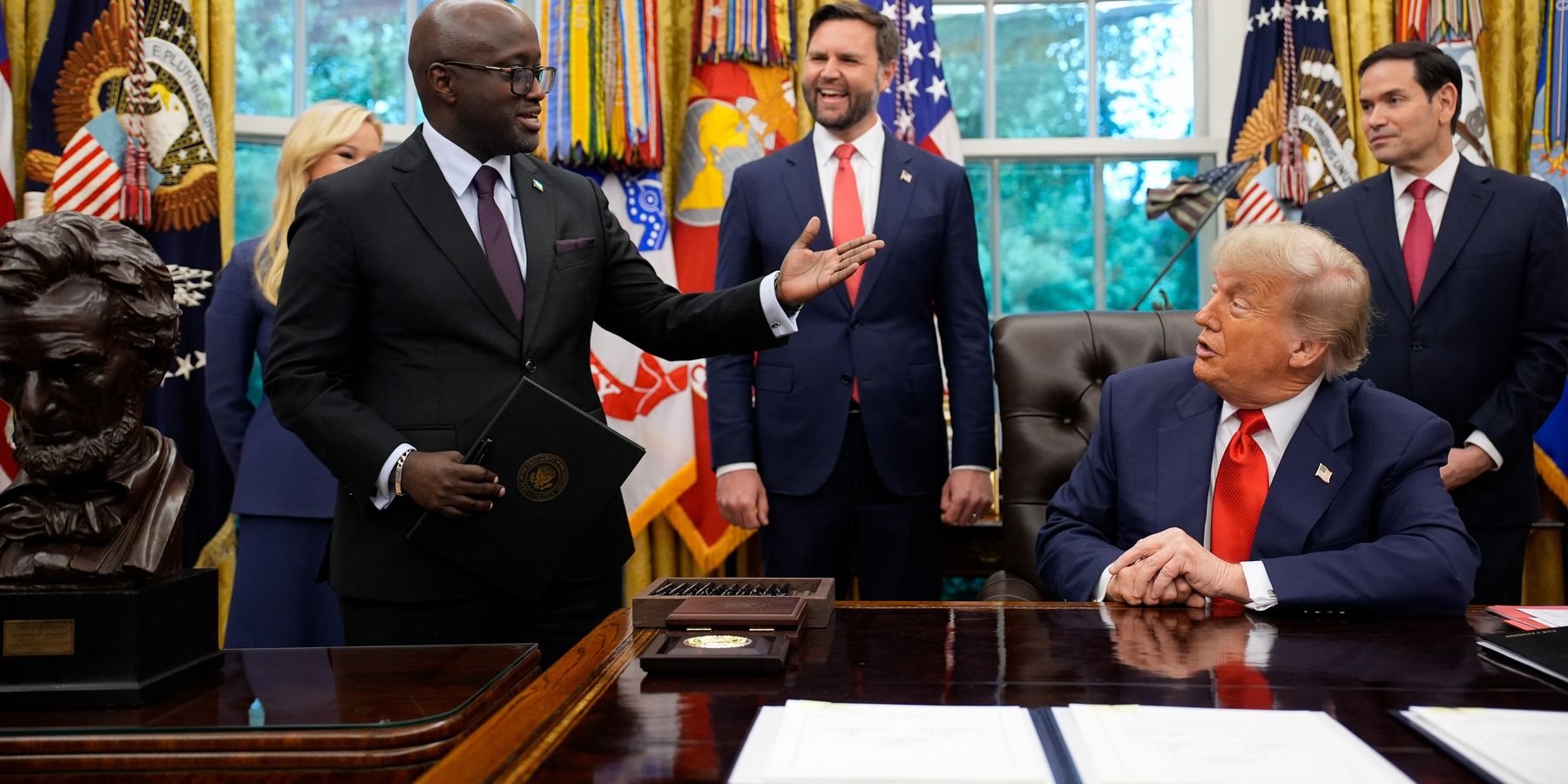Fresh from hosting the signing of a peace deal between the DRC (Democratic Republic of Congo) and Rwanda last month, President Donald Trump will now welcome the leaders of five African countries at the White House for a U.S.-Africa mini-summit later this week
Critics would say this active interest in Africa is purely transactional. The question is, does it matter?
It is true that Trump wants to open up opportunities for American companies to tap into the plethora of critical natural resources found in abundance across the continent. These resources can be downstreamed in technology-heavy industries, such as electric vehicles and semiconductors, key to creating jobs in an advanced economy.
But to get to these opportunities there must be peace, which the Trump administration seems at this point committed to pursuing.
On June 27, the Trump administration brokered a peace deal between the DRC and Rwanda in the hopes of ending a decades-long war between the two neighbors. Although separate negotiations are currently ongoing in Doha, Qatar, between the DRC and the Rwanda-backed M23 rebel group that has spurred the recent increase in violence, this initial peace deal serves as hope that sustainable peace could soon be achieved.
Soon after this peace deal was struck in a signing ceremony in the Oval Office, it was reported that Trump’s Senior Advisor Massad Boulos — who served as the lead American diplomat in the negotiations between the DRC and Rwanda — will be leading the American effort to end the Sudan Civil War that has ravaged the country since April 2023. That war has led to the displacement of over 11 million people, and has turned into a complicated diplomatic imbroglio, with countries including Egypt, the United Arab Emirates, and Iran sending weapons to Sudan.
Former President Joe Biden, who was otherwise quite inactive on African affairs, tried unsuccessfully to bring about a long-lasting conclusion to the conflict.
This week’s summit in Washington will bring together the leaders of the West and Central African states of Mauritania, Senegal, Liberia, Guinea-Bissau, and Gabon. Though no schedule nor description of planned events or discussions have been publicly announced, the collection of Anglophone and Francophone countries are likely to discuss topics focused on enhancing business dealings with American companies and finding ways to increase trade between the five African countries and the United States.
Though security might come up, it is unlikely to be a central focus of the meetings. Despite the fact that West Africa is now more impacted by jihadi terrorism than any other part of the world, the countries visiting Washington have thus far avoided suffering serious security challenges from the jihadi groups expanding across North Africa and the Sahel.
Despite being relatively small, a couple of the countries visiting the United States are notable regional actors. Under President Bassirou Diomaye Faye, Senegal, for example, is leading the effort to quell the fallout from Niger, Mali, and Burkina Faso’s decision to leave the regional community ECOWAS and form their own independent body known as the Alliance of Sahel States. Faye has conducted shuttle diplomacy between the countries and has sought ways to reintegrate them into the regional fabric.
Meanwhile, Mauritania is a major departure point for migrants looking to escape into the United States — a key issue for the American president, who has argued for stricter enforcement of the U.S. border and limitations on both legal and illegal migration into the United States.
This summit will likely serve as a close follow-on from the 13th annual U.S.-Africa Business Summit that concluded June 25 in Luanda, Angola. During the summit, $2.5 billion of new deals were announced between businesses and governments, including geopolitically significant projects such as a hydropower plant to be built along the Ruzizi River, which serves as the border between the DRC and Rwanda. The American company Anzana Electric will take a 10% percent stake in the project.
This week’s meetings also come before a full U.S.-Africa summit is expected to take place in New York City in September. This will be the first such convocation between the United States and African countries since Biden’s U.S.-Africa Leaders Summit was held in Washington in December 2022.- The daunting challenges facing Biden's Sudan envoy ›
- Could Trump's Congo-Rwanda mineral deals actually save lives? ›
















